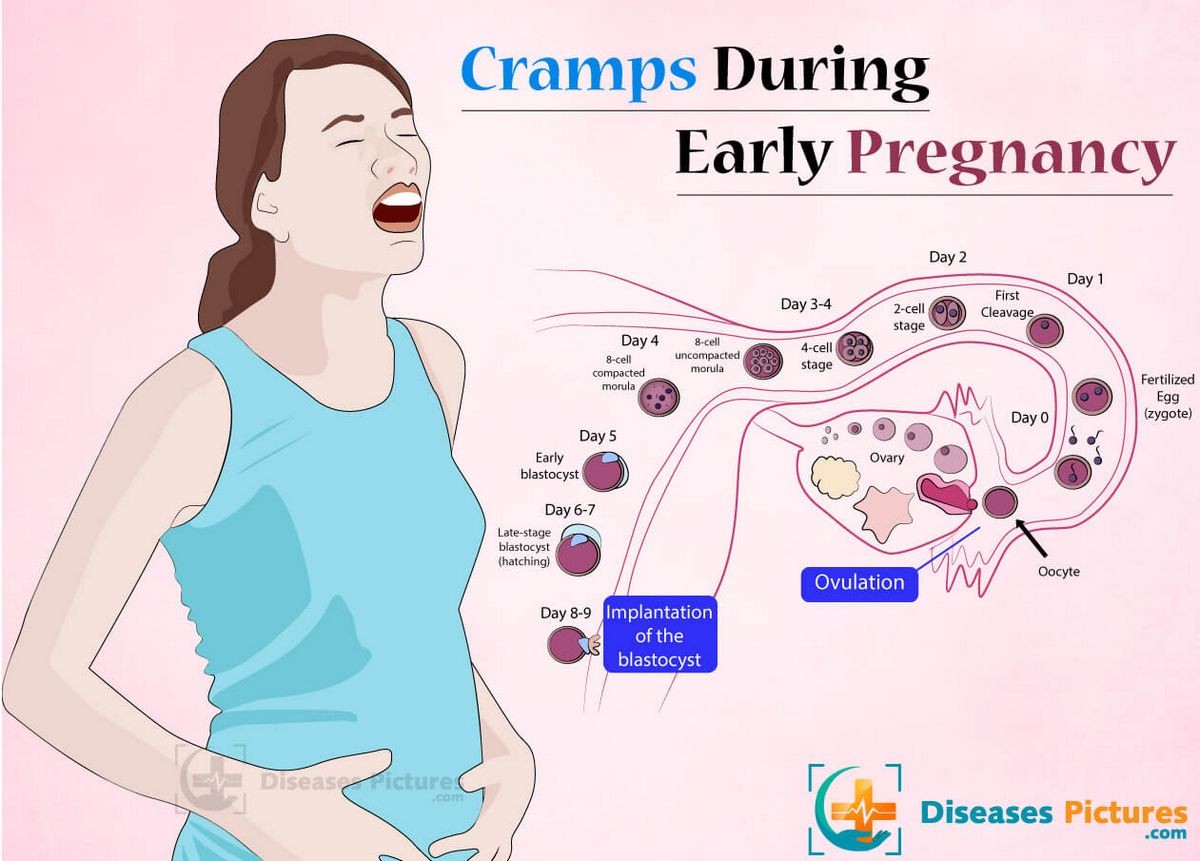
Contents
- 1 What Does Early Pregnancy Cramping Feel Like?
What Does Early Pregnancy Cramping Feel Like?
Cramping is a common early pregnancy symptom. Aches, twinges, and muscle pain are typical and differ between people. However, cramps accompanied by bleeding, fever, or discharge should prompt you to contact your doctor.
Many people experience cramps in early pregnancy as your baby develops. It is normal to experience cramping or a mild pulling sensation in your abdomen. Cramping is not considered an early detection sign of pregnancy, but it is a common symptom.
Many remedies are available and effective in reducing pregnancy cramps. However, some treatments may be dangerous during pregnancy. It is important to differentiate between the two.
Some types of cramping should prompt you to contact your doctor or emergency medical services. Learn about when cramping is a natural part of a healthy pregnancy and when you should seek medical attention to rule out complications.
Signs and symptoms of pregnancy cramps
It is important to differentiate between normal early pregnancy cramps and cramping that may point to complications. The following types of pain are normal early pregnancy symptoms:
Implantation pain
In the earliest stage of pregnancy, you may experience implantation pain. This is when the fertilized egg implants in the uterus. Pain generally occurs around the time when your period would normally begin. It may be accompanied by light spotting.
Implantation pain feels like a mild menstrual cramp. You may experience an aching or pulling sensation in your lower abdomen. The duration of the pain and spotting differs between people. Many people experience no pain. Some may have mild and intermittent pain for several days.
First trimester cramps
During the first trimester, your uterus and supporting muscles begin to stretch. You may experience occasional cramps. Your pain should be relatively mild and infrequent. It may be more pronounced when you cough, sneeze, or adjust your position.
Causes of pregnancy cramping
There are several causes of cramps in early pregnancy. Some require medical intervention. The most common causes include:
Implantation
Mild cramping around the time of implantation is normal. You may feel twinges or minor pain over a few days.
Bodily changes
Your body must adjust to make room for your growing baby. It will be stretched and flooded with hormones. Both can cause occasional cramping.
Intestinal symptoms
Pregnancy directly causes mild cramps. Your pregnancy may also come with other symptoms that produce cramping, such as constipation, gas, and bloating.
Sexual intercourse
You may experience intense uterine cramping after sexual intercourse. This pain should go away quickly.
Urinary tract infection (UTI)
Pregnant people are at an increased risk for urinary tract infections by the sixth week of the first trimester. This can cause cramping in the lower abdomen and other symptoms like frequent urination, discomfort during urination, blood in the urine, fever, and incontinence.
Early pregnancy loss
If you experience cramping in your pelvic area, lower back, or abdomen, these may be signs of a miscarriage. This cramping is often accompanied by vaginal bleeding that may start as a brownish discharge. Initial bleeding may be light, and heavy bleeding may indicate the presence of pregnancy tissue passing from the body.
Ectopic pregnancy
An ectopic pregnancy occurs when the egg is implanted outside the uterus, usually in the fallopian tubes. This is dangerous to the mother and usually results in the loss of the embryo. Cramping and heavy bleeding in the first trimester are common symptoms.
When to see the doctor for early pregnancy cramping
You should see a doctor if you have any of the following symptoms during your first trimester:
- Severe and long-lasting pain
- Cramping accompanied by fever, discharge, or dizziness
- Cramping and heavy bleeding
- Cramping along with pain in the shoulder or neck
You should also speak to your doctor about any concerns with cramping during your regularly scheduled appointments.
People over the age of 40 are more likely to experience early pregnancy loss. They should be particularly attentive to potential symptoms.
Diagnosing early pregnancy cramping
If your doctor is concerned about pregnancy complications, they will ask you about the intensity and duration of your cramping. They may also perform pelvic exams, ultrasounds, or blood and tissue tests to determine the cause of your pain.
Treatments for early pregnancy cramping
Early pregnancy cramps may be relieved without medication. Try the following home treatments to relieve pain:
- Lie down, sit, or change positions
- Take a warm bath
- Place a heating pad or hot water bottle at the site of the cramp
- Perform relaxation exercises
Drinking plenty of fluids may also help with cramp prevention.
In the case of more persistent cramping, you may want to try over-the-counter pain relievers. However, it is important to avoid certain medications and consult your doctor for recommendations.
Uncommon signs of early pregnancy
In the first week of pregnancy, hormonal changes occur and may cause symptoms similar to a menstrual period. Some common and uncommon symptoms include amenorrhea, bleeding (different from the menstrual period), cramping, nausea, breast changes, frequent urination, headache, bloating, fatigue, food cravings or aversions, irritability, heightened sense of smell, and metallic taste in the mouth.
Pregnancy symptoms vary for each woman, and some may not experience any symptoms at all.
How is pregnancy diagnosed?
Pregnancy can be diagnosed through urine and blood tests. Urine pregnancy tests are based on the presence of human chorionic gonadotropin (hCG) and can be performed using various methods. Blood tests can also detect hCG and provide a positive result.
Source: American College of Obstetricians and Gynecologists, American Family Physician, American Pregnancy Association, American Association of Pregnancy, Canadian Family Physician, Harvard Health Publishing, March of Dimes, Stöppler MC, MedicineNet, WebMD


